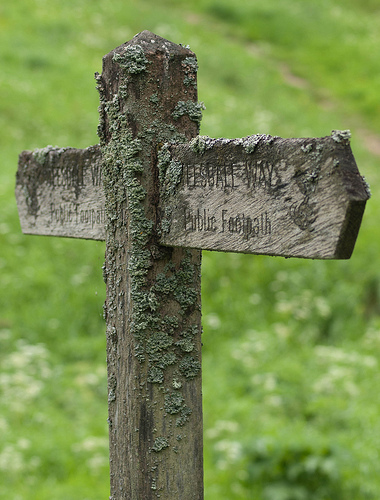
I recently posted on John Wesley’s “Basic Christianity,” looking at the rock-bottom standards he insisted on for members of the early Methodist movement.
True enough, Wesley’s baseline was to avoid obvious sin, do a lot of good, and practice basic Christian spiritual disciplines.
However, Wesley was very clear that toeing the mark on these things didn’t actually make a person a member of the Methodist movement.
Oh no. Not at all.
In his own words,
“We do not place the whole of religion (as too many do, God knoweth) either in doing no harm, or in doing good, or in using the ordinances of God.”
Correct me if I’m wrong, but I think a great many Christian communities would find these three standards a high mark, well above current practice. But I digress.
What then, really, marked the members of the Methodist community under Wesley?
At first glance his defining standards sound very familiar:
“A Methodist is one who … ‘loves the Lord his God with all his heart, and with all his soul, and with all his mind, and with all his strength.’”
“And he accordingly loves his neighbour as himself; he loves every man as his own soul.”
Those are, of course, the two great Old Testament commandments Jesus highlighted as the heart of God’s law. They have a prominent history in the Church. St. Augustine thought they defined the blessed life for which we were created and to which we are called.
So what is really new here? We all know God commanded these things.
The new thing is that Wesley expected his Methodists to actually do them.
“In all his employments of every kind, he not only aims at this … but actually attains it.”
A lot of us, especially in the Reformed tradition, don’t really think it is possible to love God with all one’s being and love one’s neighbor as one’s self — in this life we try, we make progress, but we don’t count on getting there.
But clearly Wesley thinks we can. He calls his people to a remarkably complete commitment, not to picky standards of behavior but to a life consecrated to God. In terse form, for a Methodist worthy of the name,
“All that is in the soul is holiness to God”
Or citing biblical language,
“…his one desire, is the one design of his life, namely, ‘not to do his own will, but the will of Him that sent him.’”
Or again, when using the vocabulary of Christian mysticism,
“… where the loving eye of the soul is continually fixed upon God, there can be no darkness at all …”
What on earth are we to make of this radical call to conversion? Wesley called it
“plain, old Christianity.”
And this, my friends, was his basis for membership in the community. This standard of holiness with all it implied comprised what he called
“the marks of a true Methodist.”
This understanding of total passionate devotion was also the basis for unity with Christians outside his movement. It was what prompted his famous statement
“Is thy heart right, as my heart is with thine? I ask no farther questions. If it be, give me thy hand.”
He did not want to overemphasize doctrinal distinctions — but he did not settle for any watered-down understanding of what it means to be a Christian.
That is an amazing ideal to set as the definition of a movement. More amazing still is how the ideal caught on!
How might Christian life today look different with Wesley’s “plain, old Christianity”?
How might a new Christian community look with this as the basic standard for membership?
____________
If you liked the post, please share it on your favorite social media site. You can use the buttons right here:

Leave a Reply